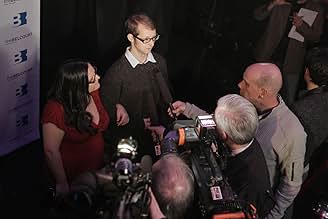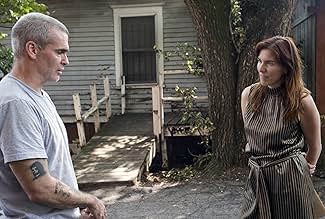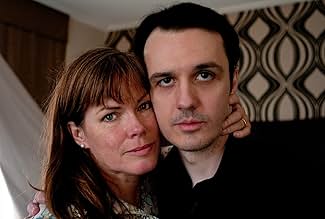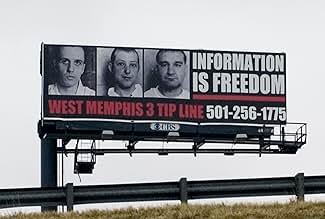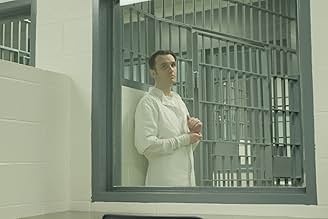NOTE IMDb
7,9/10
11 k
MA NOTE
Ajouter une intrigue dans votre langueAn examination of a failure of justice in the case against the West Memphis Three.An examination of a failure of justice in the case against the West Memphis Three.An examination of a failure of justice in the case against the West Memphis Three.
- Nomination aux 1 BAFTA Award
- 1 victoire et 10 nominations au total
Jessie Misskelley
- Self
- (as Jessie Miskelly)
Michael Baden
- Self - Former New York City Chief Medical Examiner
- (as Dr. Michael Baden)
Jamie Clark Ballard
- Self - Neighbor of Stevie Branch
- (as Jamie Ballard)
Steve Braga
- Self - Damien Echols' Attorney
- (as Stephen Braga)
David Burnett
- Self - Trial Judge
- (as Judge David Burnett)
John Mark Byers
- Self - Christopher Byers' Father
- (as Mark Byers)
The Chicks
- Themselves
- (images d'archives)
- (as Dixie Chicks)
Heather Crawford
- Self - TV News Anchor
- (images d'archives)
Histoire
Le saviez-vous
- AnecdotesToutes les informations contiennent des spoilers
- Citations
Damien Wayne Echols: The thing I like most about time is that it's not real. It's all in the head. Sure, it's a useful trick if you wanna meet someone at a specific place in the universe to have tea or coffee. But that's all it is, a trick. There's no such thing as the past, it exists only in the memory. There's no such thing as the future, it exists only in our imagination. If our watches were truly accurate the only thing they would ever say is now.
- ConnexionsFeatured in At the Movies: Épisode #10.1 (2013)
- Bandes originalesThe Times They Are a-Changin'
Written by Bob Dylan
Performed by Eddie Vedder
Published by Special Rider Music (SESAC)
Courtesy of Fearless Films
Commentaire à la une
Martin Luther King said, "The arc of history is long but it bends toward justice." Justice has been a long-time coming for Damien Echols, Jason Baldwin and Jessie Misskelley, three marginalized teenagers wrongfully convicted of the 1993 murders of three eight-year-olds: Steven Branch, Michael Moore and Christopher Byers, found dead in a creek in West Memphis, Arkansas. The subject has been brought to the screen before in the "Paradise Lost" trilogy, yet the documentary West of Memphis, directed by Amy Berg and written by Billy McMillin, adds another dimension to our knowledge and understanding of the circumstances and the characters involved. It is a film of extraordinary power that has the ability to stir a range of emotions from frustration, anger, depression, to even joy.
After the victims were found beaten, bruised, and sexually mutilated, hysteria gripped the town and word circulated about the killings being the work of a satanic cult. Despite a lack of physical evidence, the accused teenagers were charged with three counts of capital murder and brought to trial. Damien Echols was sentenced to death, while Jason Baldwin and Jessie Misskelley both received life sentences. Jesse confessed to the crime but the audio recording of Jessie's interrogation reveals that the prosecution took advantage of the mildly retarded boy by feeding him the desired answers. Soon after the verdict was handed down much to the relief of the bereaved parents and frightened residents, critics of the case began to point to serious discrepancies in the evidence.
It was also found out later that many of the visible physical injuries were caused after the children's death by turtles living in the swamp. The subsequent media attention led to a twenty-year campaign to free the inmates who become known as the Memphis 3. West of Memphis includes archival footage of the trial and press reports, a police investigation video, and contemporary interviews with victim's families, supporters of the convicted men including their attorneys, and celebrities such as Johnnie Depp, Eddie Vedder, and filmmakers Peter Jackson and Fran Walsh. If not for the courage and, of course, the financial support of those who fought a long battle to overturn the convictions, Damian might have been executed years ago.
Of the three convicted men, much of the film's focus is on Damian, a self-educated and highly articulate young man, describing his correspondence and subsequent marriage to New York Landscape Architect Lorri Davis. Despite the community protest and continued investigation of the case that unearthed new evidence, particularly DNA evidence, it became increasingly apparent that the justice system in Arkansas would rather perpetuate a lie than admit serious mistakes and become vulnerable to a series of damage suits. Even though he is presented with overwhelming evidence for a new trial, the original judge, David Burnett (now a state senator) refused to reconsider the case.
As a result of the continued pressure by those working for the boys' release, another suspect emerges who has never been investigated before and was the last person seen with the murdered boys. The thrust of this new lead propels West of Memphis toward a dramatic and surprising conclusion. Although some of the tactics of the investigation are open to question, such as filming a young girl's session with a psychiatrist and recording a private telephone conversation, West of Memphis is a riveting experience that suggests incidents of injustice and abuse of power such as this may be more common than we think.
After the victims were found beaten, bruised, and sexually mutilated, hysteria gripped the town and word circulated about the killings being the work of a satanic cult. Despite a lack of physical evidence, the accused teenagers were charged with three counts of capital murder and brought to trial. Damien Echols was sentenced to death, while Jason Baldwin and Jessie Misskelley both received life sentences. Jesse confessed to the crime but the audio recording of Jessie's interrogation reveals that the prosecution took advantage of the mildly retarded boy by feeding him the desired answers. Soon after the verdict was handed down much to the relief of the bereaved parents and frightened residents, critics of the case began to point to serious discrepancies in the evidence.
It was also found out later that many of the visible physical injuries were caused after the children's death by turtles living in the swamp. The subsequent media attention led to a twenty-year campaign to free the inmates who become known as the Memphis 3. West of Memphis includes archival footage of the trial and press reports, a police investigation video, and contemporary interviews with victim's families, supporters of the convicted men including their attorneys, and celebrities such as Johnnie Depp, Eddie Vedder, and filmmakers Peter Jackson and Fran Walsh. If not for the courage and, of course, the financial support of those who fought a long battle to overturn the convictions, Damian might have been executed years ago.
Of the three convicted men, much of the film's focus is on Damian, a self-educated and highly articulate young man, describing his correspondence and subsequent marriage to New York Landscape Architect Lorri Davis. Despite the community protest and continued investigation of the case that unearthed new evidence, particularly DNA evidence, it became increasingly apparent that the justice system in Arkansas would rather perpetuate a lie than admit serious mistakes and become vulnerable to a series of damage suits. Even though he is presented with overwhelming evidence for a new trial, the original judge, David Burnett (now a state senator) refused to reconsider the case.
As a result of the continued pressure by those working for the boys' release, another suspect emerges who has never been investigated before and was the last person seen with the murdered boys. The thrust of this new lead propels West of Memphis toward a dramatic and surprising conclusion. Although some of the tactics of the investigation are open to question, such as filming a young girl's session with a psychiatrist and recording a private telephone conversation, West of Memphis is a riveting experience that suggests incidents of injustice and abuse of power such as this may be more common than we think.
- howard.schumann
- 3 mars 2013
- Permalien
Meilleurs choix
Connectez-vous pour évaluer et suivre la liste de favoris afin de recevoir des recommandations personnalisées
- How long is West of Memphis?Alimenté par Alexa
Détails
- Date de sortie
- Pays d’origine
- Sites officiels
- Langue
- Aussi connu sous le nom de
- 非法的正義
- Lieux de tournage
- Sociétés de production
- Voir plus de crédits d'entreprise sur IMDbPro
Box-office
- Montant brut aux États-Unis et au Canada
- 310 154 $US
- Week-end de sortie aux États-Unis et au Canada
- 13 360 $US
- 30 déc. 2012
- Montant brut mondial
- 318 317 $US
- Durée2 heures 27 minutes
- Couleur
- Mixage
- Rapport de forme
- 1.85 : 1
Contribuer à cette page
Suggérer une modification ou ajouter du contenu manquant

Lacune principale
By what name was West of Memphis (2012) officially released in India in English?
Répondre







